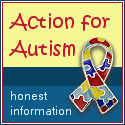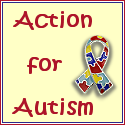Ever done this game:
People are all standing or sitting in a line.
Someone writes down a message and goes to the first person and whispers a message in his ear.
This message is whispered in the ear of the next person, etc etc.
At the end the message is collected and written down.
There's a large chance the message is transformed during the process.
That's what happens with scientific research.
A researcher finds data which are translated into a conclusion about the researched subject.
This conclusion is summarised, and there it goes: the media, all sorts of people, on and on it goes...
You'll understand what the result is. :)
One way scientists battle this problem is very simple:
Mention the source of the information and the place where to read the precise details of the research.
That way relevant information can be found within minutes.
My advice is to do that too when you write a blogpost, an article or anythings else.
Such a little effort for such a great result.
Take the message: "Autism can be cured" or "children can recover from autism."
This message refers to a research presentation at a conference by professor Deborah Fein of the University of Connecticut psychology.
I haven't found the exact text of her presentation, so I have to go by reports from those who attended the conference. (So that's seceond hand knowledge).
The results are from 20 children. (Far from being enough to draw acceptable conclusions.)
The study involved children from 9 to 18.
It's not clear whether the ages also involve the first diagnosis. But I have to assume not, because it was said children were diagnosed before age 5.
I have no access to the diagnostic criteria, which troubles drawing a conclusion.
And I have no idea which neuropsychological tests were used.
Some of those tests will be done better a second and third time, regardless of improvement of the autism.
Interesting is the description of the group of children that showed improvement:
Many have been diagnosed with relatively mild cases of autism, many also have above-average IQs. At age 2, many were within the normal range for motor development, able to walk, climb and hold a pencil.
Interesting is that it was told that in most cases improvement was already seen at age 7.
(Which suggests late onset development, instead of real autism. But again, I haven't seen her diagnostic criteria.)
75% of the children had other disorders, which raises the question whether these children had autism at the time of diagnosis, or displayed autistiform behaviour as a symptom of an underlying problem.
The children all received intensive therapy during the main part of the week.
In fact Fein published nothing new.
Former research conclusions reported 3 to 25% of improvement of autistic behaviour towards acceptable behaviour.
The results of Fein, 10 to 20%, is well within that range.
In fact the media could also have reported:
Less children are cured from autism.
Fein acknowledges that most children will remain autistic, despite lots of therapy and other ways of intervention. With other words 80 to 90% of the autistic children will have to battle autism all their lives.
That pretty opposes all those tweets, blogposts and articles telling me there's a cure for autism.
Ofcourse I want hope, but no false hope.
Do you know where I've found hope?
Here.
Maybe wanting to normalise autistic people is not curing them at all.
Subscribe to:
Post Comments (Atom)







2 comments:
You have a wonderful sense of how to evaluate science and scientific studies.
Especially once they get through the media, they are frequently all hype and no data.
I'm so glad to see skepticism in action.
My understanding about autism is very low... shame on me
Reading through this blog surely opens my mind a bit :)
Post a Comment